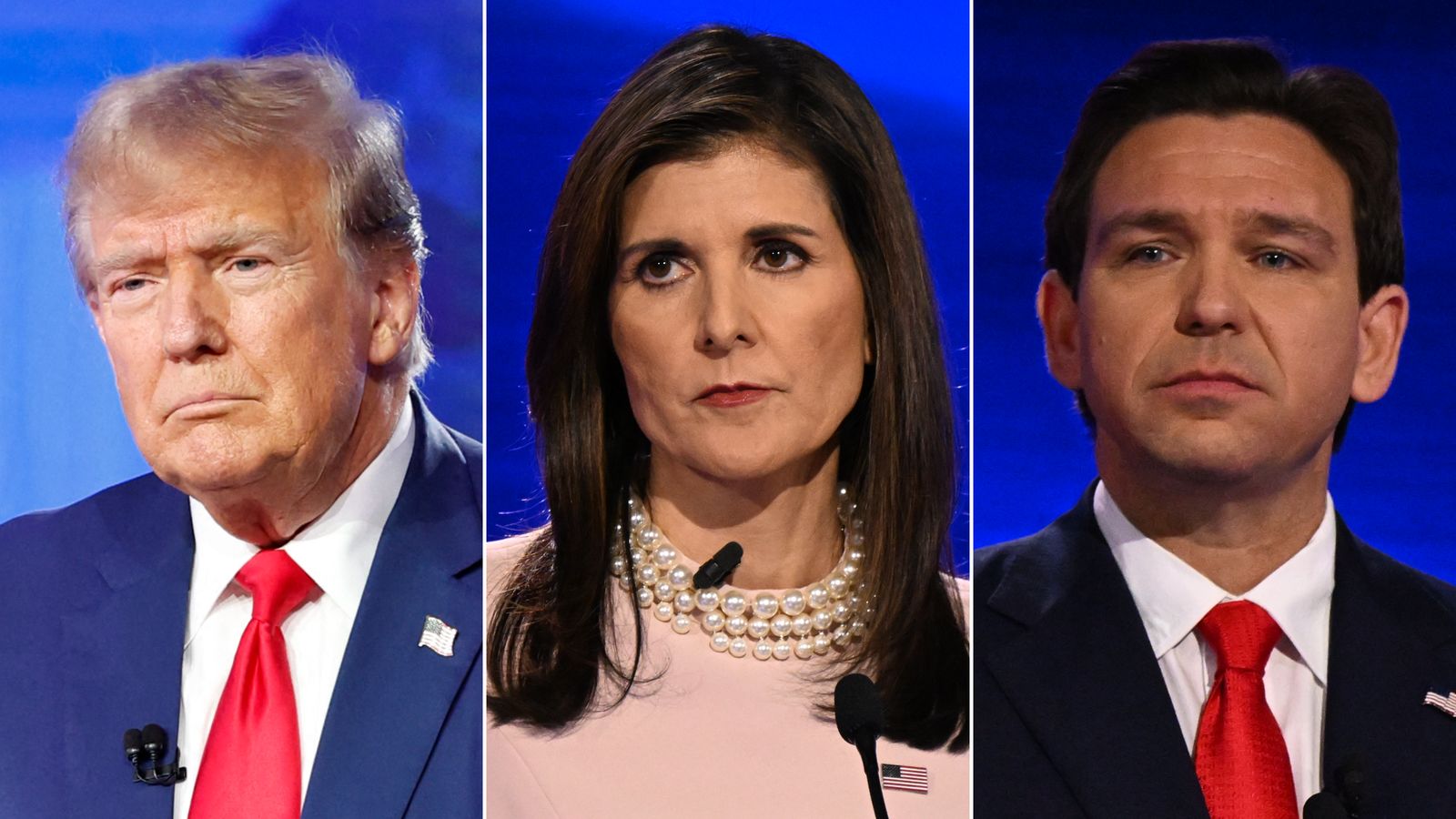As the New Hampshire primary results roll in on Tuesday night, they appear to mirror the final CNN/UNH poll results released on Sunday. This leaves a looming question over the Republican presidential nomination race: Is the contest already decided?
Former South Carolina Governor Nikki Haley has been clear in her stance that “the road is never going to stop here in New Hampshire.” Meanwhile, Florida Governor Ron DeSantis has expressed his intention to vie for delegates at least until the end of March. However, the feasibility of Haley and DeSantis maintaining a competitive level of campaign funding, let alone persuading Republican voters and influential figures that there is a reason to continue the race, is becoming increasingly difficult to envision.
This comes in the wake of significant consecutive victories for former President Donald Trump in Iowa and New Hampshire, where he secured a majority of both votes and delegates. It is noteworthy that no non-incumbent Republican candidate for president has ever won both Iowa and New Hampshire. In the annals of modern presidential campaign history, since the Iowa caucuses became the official kickoff followed by the New Hampshire primary, only Democrats Al Gore and John Kerry have won both contests outright, subsequently becoming their party’s nominee.
In the recent CNN/UNH poll, one finding stands out as particularly indicative of the current race dynamics: When likely GOP primary voters were asked for their overall opinion of the candidates, Trump’s favorability rating far outstripped his competitors. Trump garnered a 56% favorable rating from likely Republican primary voters, compared with a 36% unfavorable rating. This gives the former president a net positive 20-point favorable advantage.
Conversely, both Haley and DeSantis find themselves in a less favorable position. More GOP primary voters have an unfavorable view of them than a favorable one. The persistent attacks on DeSantis by Trump and his allies over the past year, and their more recent onslaught against Haley, have achieved their desired outcome — more negative ratings for Trump’s two main rivals.
However, the strategic decision by DeSantis and Haley to intensify their criticisms of Trump only at the tail end of these contests is also evident. The constant worry that directly attacking Trump would alienate some of the voters Haley and DeSantis spent much of 2023 trying to win over has left Trump’s popularity with Republicans largely unscathed, if not enhanced. While it may have been impossible for any candidate to significantly dent Trump’s strong bond with the majority of Republican voters, it is also clear that not having attempted to do so for the entire year before the voting began leaves these non-Trump candidates with very limited options for a path forward.

